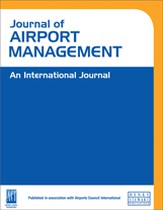The economic and environmental benefits of runway capacity optimisation: The case of Gran Canaria Airport
Abstract
Rapid growth in air transport has meant an increased demand for airport capacity. Therefore there is a need to address traditional air transport restrictions. This paper analyses the application of the Inventive Problem Solving Algorithm (TRIZ) to manage airport capacity as an alternative technique to traditional pricing structure management. This ad hoc methodology puts emphasis on airport operational characteristics instead of formulating a universal mathematical model, and could represent a feasible and no-data intense solution. Following a classical approach based on TRIZ, a complex problem in a specific system could have an optimal solution within its own system. Furthermore, it is sufficient to explore the system’s design components in order to allow for improvements in that system. A tentative simulation of a TRIZ solution for Gran Canaria airport capacity management is estimated in order to reduce aircraft operations time. Its applications to Gran Canaria Airport could produce reductions in CO2 emissions and economic benefit for air carriers by reducing taxiing time.
The full article is available to subscribers to the journal.
Author's Biography
Francisco Lorenzo Aparicio is an Aerospace Engineer (MEng Hons), University of Bath, with a holistic experience in the aviation sector, having worked on various aircraft programmes within Original Equipment Manufacturer (OEM) design offices, airline operations and aircraft maintenance on one of the leading Maintenance Repair & Overhaul (MROs) specialised in Avions de Transport Régional aircraft. He currently works as a Quality Assurance Manager providing operator in service support within a European military transport aircraft programme.
Roberto Rendeiro Martín-Cejas is a titular professor in the Faculty of Economy and Tourism at the University of Las Palmas of Gran Canaria. He is Industrial Engineer, PhD in applied economics and Master in transport economics at the University of Leeds. He has authored several papers on airports and air transport, and also actuated as a peer reviewer for several journals. In the past, he worked as a consultant for The World Bank in areas related to airport regulatory measures. He has participated in several research projects for the Spanish government as well.
